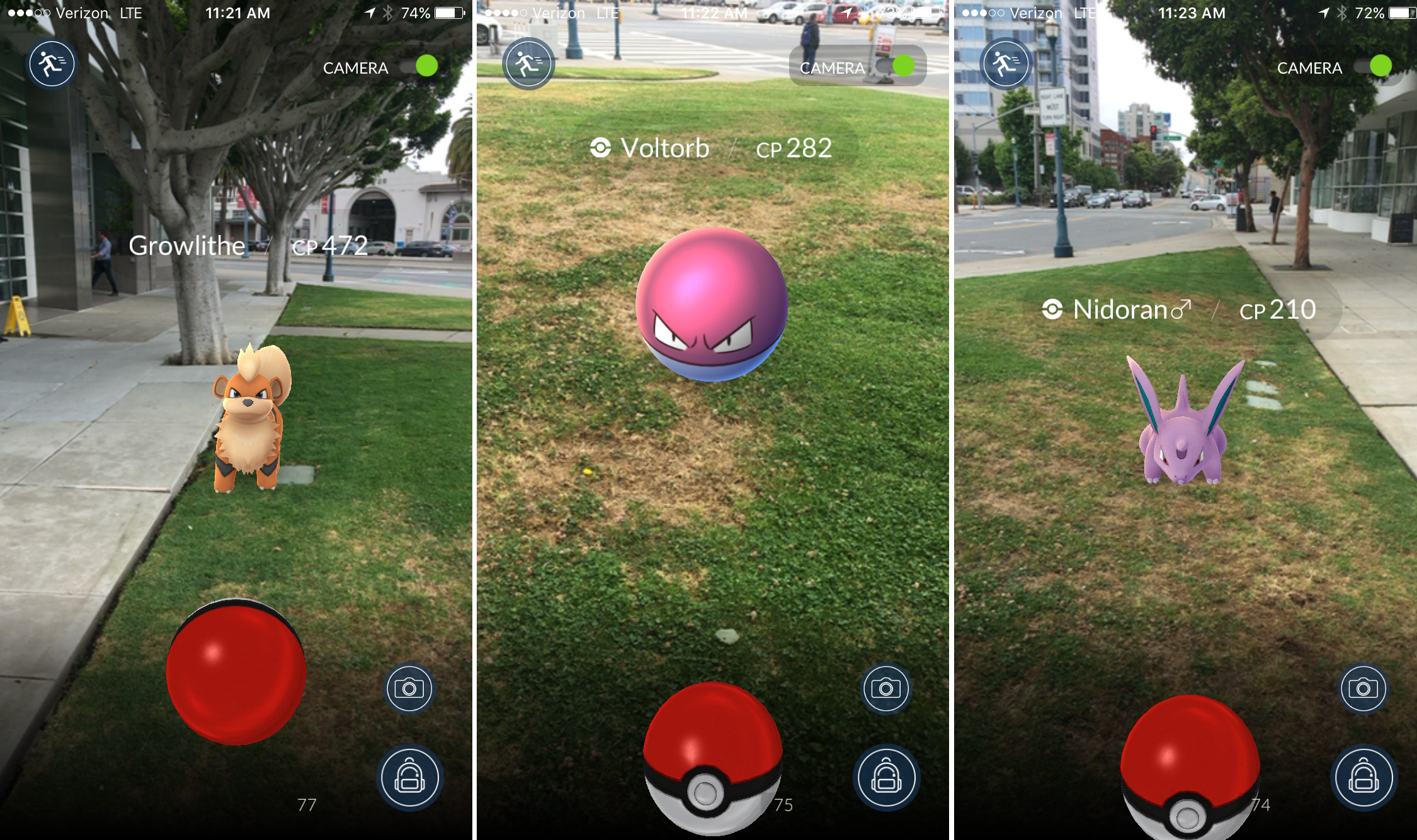Pokémon Go is a mobile app, which is quickly taking over the world. In just two weeks after its release the free app has made over $1 billion worldwide through optional in-game purchases. Streets and parks are busy with people playing the game on their phones and yet the media is full of dangerous warnings about this game. Do the benefits of this game outweigh the risks or should people stop playing this game immediately?
Game Description
The game requires that the player turn on his/her phone GPS and camera, depending on the player’s location. Different kinds of Pokémon may appear at seemingly random times and the player has to catch the Pokémon on the screen using a Pokeball, which can entrap the Pokémon.

Players are able to increase their chances of catching the different kinds of Pokémon by moving to different locations, as certain types of Pokémon only appear in specific types of places (for example, water-based Pokémon are more likely to appear near the ocean, lake, or a river). In addition, the players also gain other advantages for walking, such as being able to hatch eggs with more Pokémon inside and find multiple Pokestops, where the players are able to collect Pokeballs necessary to entrap the Pokémon.
Once the player reaches Level 5 in the game, he or she is able to choose a team. Available teams are Red (Team Valor), Yellow (Team Instinct), and Blue (Team Mystic). The teams then compete for Gyms (desired locations, won over through game combat, where larger teams of players with larger Pokémon are more likely to win).
Given that the game requires frequent monitoring for newly appearing Pokémon, most of which only remain available for capture for a few minutes, the players are likely to be walking and looking at their phones. This can obviously present some dangers, especially when crossing the street or walking on high surfaces, such as roofs or cliffs. In addition, as with any other game, this game is not to be played while driving for obvious reasons.
Most of the reported dangers of the game can be avoided by exercising reasonable precautions:
- Not looking at the phone while driving or crossing the street
- Stopping in a safe location out of the way of traffic when looking at the phone
- Not looking at the phone while driving, operating heavy machinery, doing surgery, giving someone a tattoo or piercing, waking up Frankenstein, killing zombies, or any other task, which requires your undivided attention
- Not trying to catch the Pokémon while holding a hot beverage or standing too close to something of extreme temperature, such as a fire-breathing dragon

Parents may need to teach these techniques to children and also consistently model them as well in order to reduce the risk of potential harm. In reality, the probability of actual danger if these precautions are regularly exercises is very low.
So, why is this game so popular?
A recent article in Time Magazine suggests that people are falling in love with the app because of the sense of nostalgia it produces for people who used to play Pokémon on DS or other devices. While this seems like a sound argument and undoubtedly many of the players may fall into that category, it still doesn’t explain why people previously unfamiliar with Pokémon are so excited about this game.
I think that nostalgia is only one of many reasons people enjoy this game. Another reason may include the ease and availability of the game – not everyone has a DS but many people have a mobile phone. The availability of this game on mobile devices, the fact that it is free, and relatively easy to play makes it interesting even to people who might otherwise be uncomfortable with gaming or technology.
Another possible reason for the popularity of this game is that it readily allows people to play together with their friends and families without requiring that other people are present. Many video games are either single or multiplayer and most app games are single player (though some can be played with others). This game allows people to have both individual and team goals, making it easy for people to play whether or not other people are available.
For parents, this is a chance to bond with their children, a way to create a common goal, fight a common enemy, and have a designed task at hand. Many research studies show that people’s bonds grow stronger when they are working together on a group task, which requires everyone’s cooperation. By teaming up on one of the teams and working together to collect and level up their Pokémon and take over the local gyms, players are essentially bonding with their loved ones, strengthening their relationships, and working toward common goals, which has been shown to result in the release of the “feel good” hormones in the body, such as dopamine and endorphins. These also make the game addicting and when mild frustrations (such as a lost gym or an escaped Pokémon) occur, these too serve to make the game more enticing to the player.
Lastly, and perhaps most importantly, this game has produced an amazing phenomenon, which the news have not focused on very much – cross-cultural bonding. City parks have recently been filled with people of all skin colors, religious backgrounds, sexual orientations, and cultural backgrounds who are all playing the game together. These players help one another to meet their goals, friends helping friends and strangers helping strangers. Just people who are excited and wish to share their joy with others.
Why is this last part so important? Because that is how love is born. Research shows that when people are playing games or working on other tasks together, their sense of prejudice reduces. In addition, when we bond with others our bodies release a very important chemical, oxytocin. This neurohormone strengthens our bodies from physical and emotional stress, improving our cardiovascular and mental health, and has been linked to longevity. This means that cooperative games, such as Pokemon Go could potentially make us happier, healthier, and could potentially extend our lives.
So go on, my friends. Play the game. Catch some Pokemon. Make new friends. Just remember to look around you while playing.

I’m a therapist and I have found that the game could also be used as a distraction technique to forget about problems for a little while.
I’m a therapist and I have found that the game could also be used as a distraction technique to forget about problems for a little while.